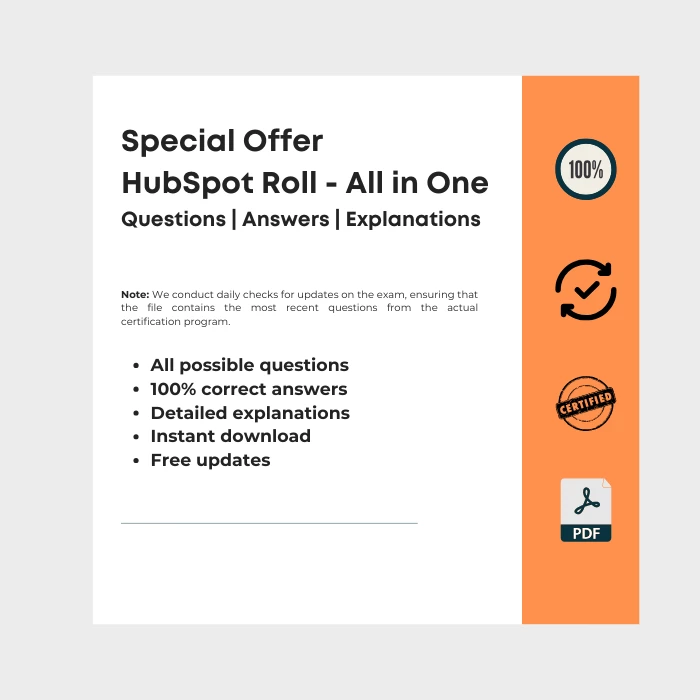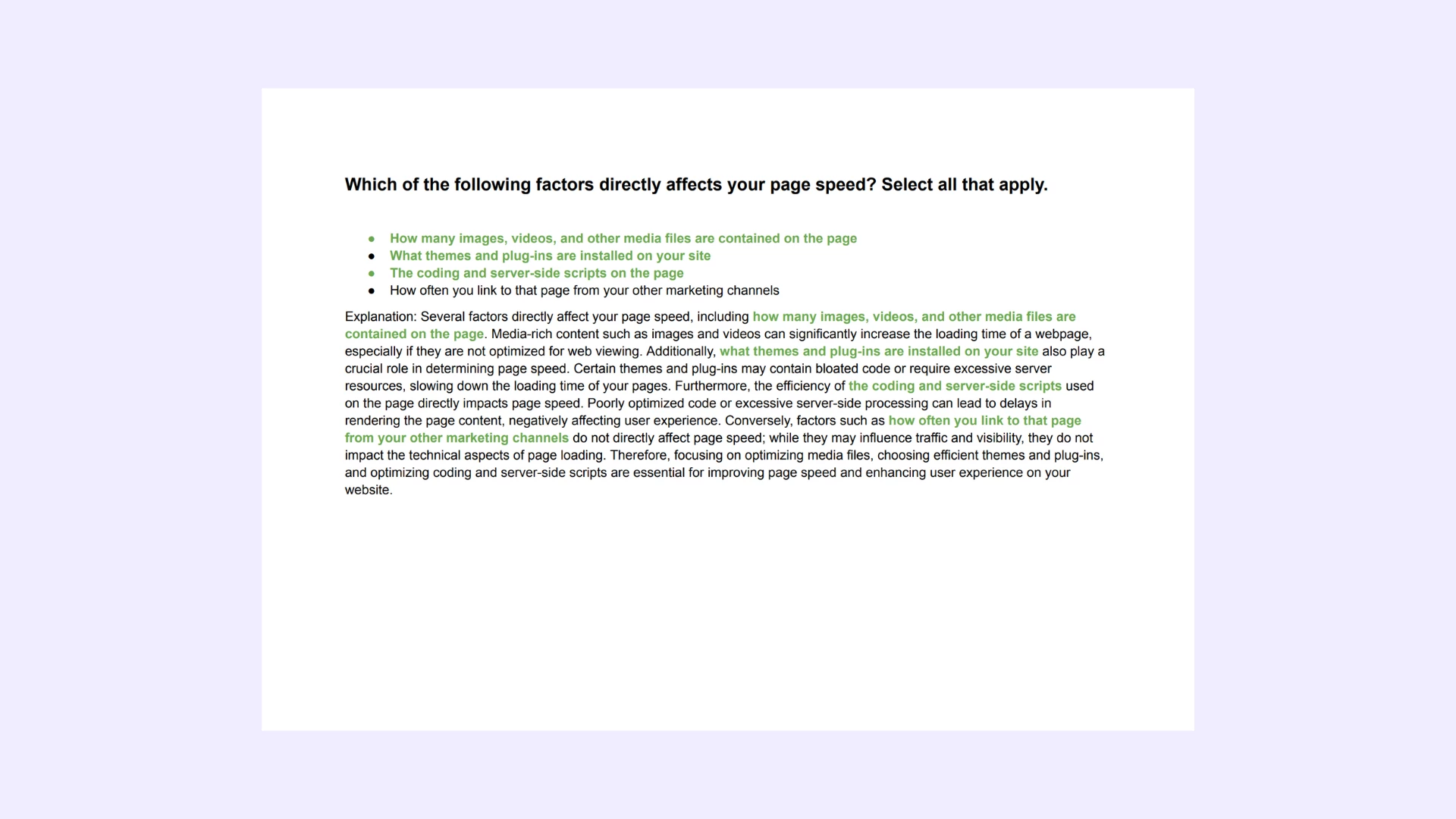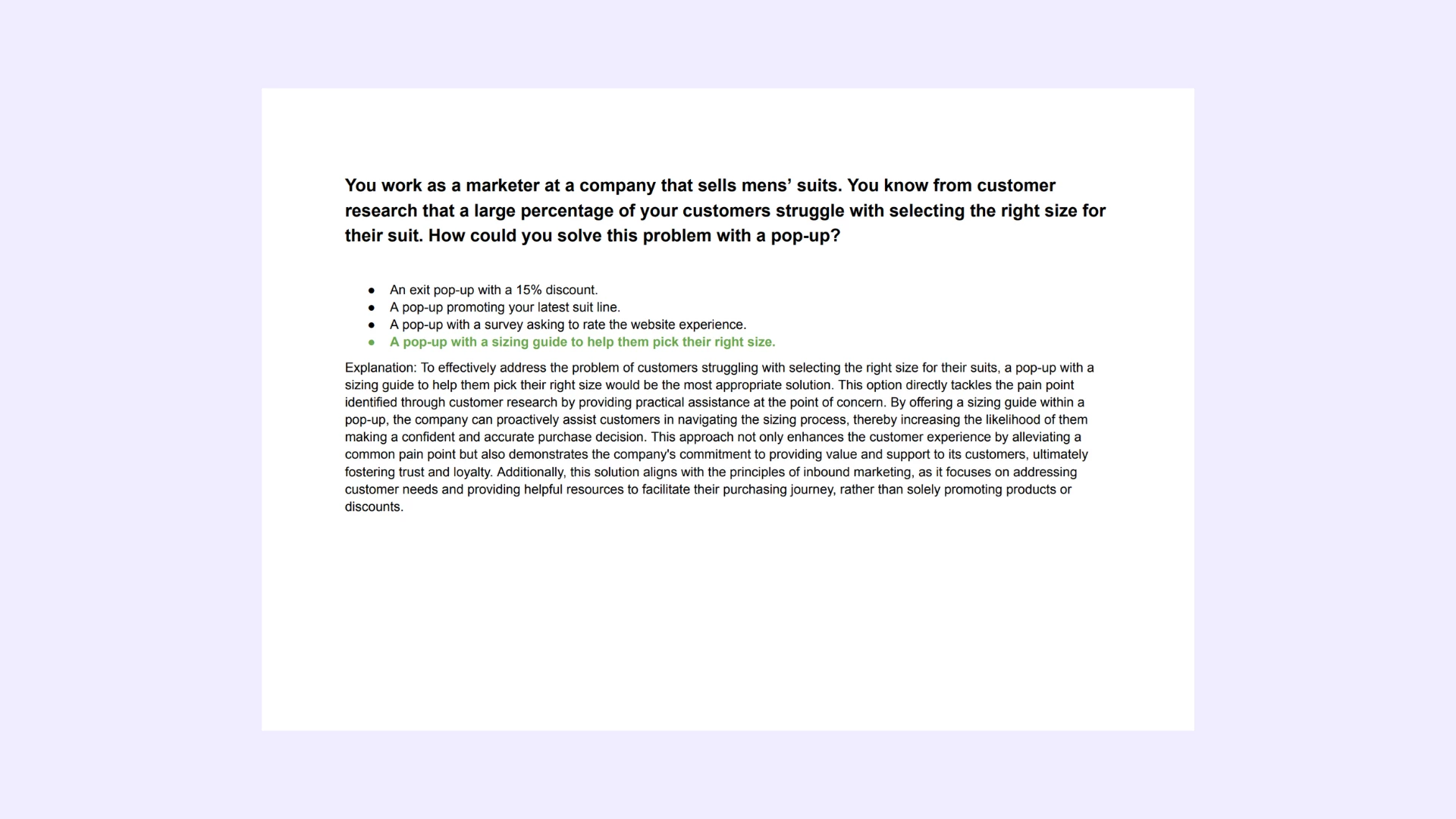In the context of digital marketing, what is zero-party data?
Data collected by third-party companies
Data gathered through cookies while a user visits a website
Data voluntarily shared by a customer with a brand
Information you didn't collect yourself, but are using secondhand

HubSpot Roll. Includes Answers for Every Real HubSpot Certification Exam.
All-in-One: Get all HubSpot exams answers with explanations in one bundle. This package includes answers for every current HubSpot certification. Regular updates to reflect the latest exam version. -> See what's included.


Need a single cerification exam answers? Check out our -> list of certification exams answer keys. Learn Smarter. Obtain or Renew your certificates with peace of mind!
Explanation: In the context of digital marketing, what is zero-party data?
Explanation: The correct answer is **Data voluntarily shared by a customer with a brand**. Zero-party data represents information that consumers proactively and willingly provide to brands, often through direct interactions or explicit consent mechanisms. Unlike first-party data, which is typically passively collected by brands through user interactions with their websites or applications, zero-party data involves customers consciously sharing personal preferences, interests, and intentions with the brand. This can include survey responses, feedback, preferences indicated through preference centers, and other forms of explicit data submission. Zero-party data is highly valuable for marketers as it offers insights directly from the source—customers themselves—providing a deeper understanding of individual preferences, motivations, and needs. By leveraging zero-party data, brands can create more personalized and relevant experiences for their customers, tailor their marketing messages and offerings, and foster stronger relationships based on trust and transparency. Additionally, since zero-party data is obtained with explicit consent, it aligns with privacy regulations and consumer expectations regarding data protection and transparency, making it a valuable asset for ethical and compliant digital marketing strategies. Therefore, understanding and effectively utilizing zero-party data is essential for marketers seeking to drive customer-centric approaches and deliver meaningful experiences that resonate with their target audience.

Special Bundle Offer HubSpot Roll. All in One
Note: We conduct daily checks for updates on the exam, ensuring that the file contains the most recent questions from the actual certification program.
Questions | Answers | Explanations. FREE Updates.
You may also be interested:
- Special HubSpot bundle offer - all HubSpot exams in one
- HubSpot CMS for develpers certification exam answers
- HubSpot CMS for develpers II certification exam answers
- HubSpot content hub for marketers certification exam answers
- HubSpot content marketing certification exam answers
- HubSpot contextual marketing certification exam answers
- HubSpot digital advertising certification exam answers
- HubSpot digital marketing certification exam answers
- HubSpot email marketing certification exam answers
- HubSpot frictionless sales certification exam answers
- HubSpot growth driven design certification exam answers
- HubSpot inbound certification exam answers
- HubSpot inbound marketing certification exam answers
- HubSpot inbound marketing optimization certification exam answers
- HubSpot inbound sales certification exam answers
- HubSpot integrating with HubSpot I foundations certification exam answers
- HubSpot marketing hub software certification exam answers
- HubSpot reporting certification exam answers
- HubSpot revenue operations certification exam answers
- HubSpot sales enablement certification exam answers
- HubSpot sales hub software certification exam answers
- HubSpot sales management certification exam answers
- HubSpot sales software certification exam answers
- HubSpot seo certification exam answers
- HubSpot seo II certification exam answers
- HubSpot service hub software certification exam answers
- HubSpot social media marketing certification exam answers
- HubSpot social media marketing II certification exam answers